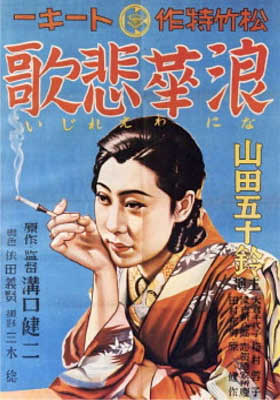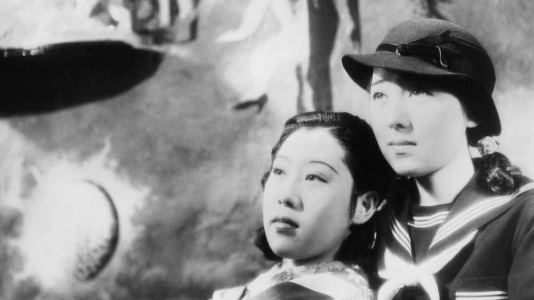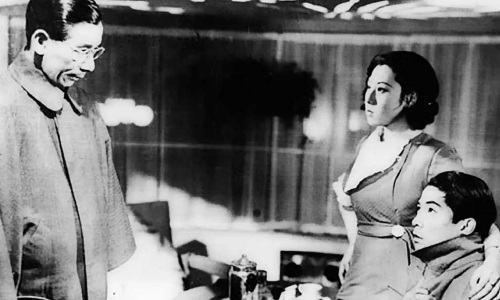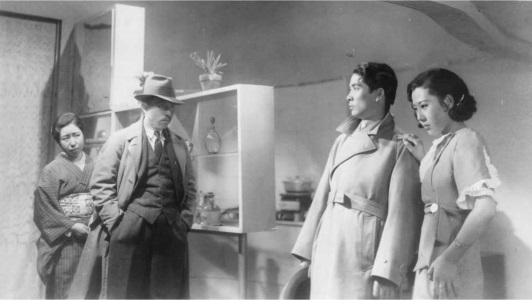Osaka Elegy

Director: Kenji Mizoguchi
Year:
1936
Rating: 7.0
This quiet but biting criticism of Japan's patriarchal
society is considered by many film historians to be Kenji Mizoguchi's first
great film. He works with script writer Yoshikata Yoda for the first of their
many collaborations to come. One of Mizoguchi's constant cinematic themes
over his lifetime was the lack of female empowerment in an unfair world.
Men set the rules for how women ideally are to fill the roles of filial daughter,
good faithful mother and wife and virgins until marriage. And yet at the
same time, men set up a societal structure of fallen women through their
economic system that incentivizes prostitution, geisha houses and mistresses.
Even selling daughters into the sex trade. In this very small film - shot
in just over a week - Mizoguchi goes after this in a poignant drama that
was deemed so depressing and un-Japanese that the government banned it in
1940 when the country had gone to full war readiness and expected the film
industry to follow suit.

It begins with Mr. Asai (Benkei Shiganoya)
having breakfast and carping irritably at all the servants for the smallest
of things. He runs the Asai Pharmacy Corporation but it is really his wife's
money that is behind it. Their relationship has evolved into one of impatience
and insults. When his wife Sumiko (Yôko Umemura) turns up for breakfast,
she says to him, should we start calling each other darling again? To which
he replies. with a face like yours, I don't think so. Later in the film she
calls him a servile, little toad. She challenges him to find a young mistress
if he has the guts. He takes her up on that and turns his attention to Ayako
(Isuzu Yamada) who is the westernized phone operator in the company. She
wears fashionable attire, smokes and takes care of her father, younger sister
and brother in university. She is in love with Susumu, another worker in
the company and wants no more than to marry him and fall into the traditional
role of wife.

But there is trouble at home. Her father
made some bad bets in the stock market and had to embezzle 300 yen to cover
his losses. Now his employers want him to repay them or go to jail. Ayako
tries to borrow the money from Susumu but he has none to spare - so she intentionally
breaks off from her family after a fight and agrees to become the mistress
of Mr. Asai. He pays off the debt and hires her father. She stays in her
new apartment and welcomes him when he can get away from his wife. She lies
to Susumu about why she left the company and what she is doing.

She sacrifices later for her brother - as
did Mizoguchi's own sister for him - but at the same time she refuses to
hold it over them and the family rejects her for having become a fallen woman.
Mr. Asai is forced by the wife to leave her too. Mizoguchi nearly films the
entire movie at a distance with next to no camera movement and fewer close-ups
than glaciers in the Artic - until the final moments of the film when Ayako
walks directly at the camera, face up and face forward. His next film
was The Sisters of the Gion with nearly the same cast.




